What to know about Volodymyr Zelenskiy, the comedian-turned president of Ukraine
Volodymyr Zelenskiy leads polls ahead of the first-round vote on Sunday.
MOSCOW -- Volodymyr Zelenskiy, now the president of Ukraine, is at the center of a push to impeach U.S. President Donald Trump.
Editor's Note: The below was written before Zelenskiy's victory in the election:
In the first round of its presidential election on Sunday, Ukrainian voters will have a choice between its current president, a former prime minister and an unlikely third candidate -- a comedian best known for a TV show where he plays a man who accidentally becomes president.
It is the comedian, Volodymyr Zelenskiy, who is currently favorite. With no candidate expected to receive more than 50 percent in the first round of the vote, polls show Zelenskiy has a strong chance to win the presidency in a second round next month.
Zelenskiy, 41, is an actor and stand-up comic who is one of Ukraine’s most popular performers. On his show, "Servant of the People," he plays a school teacher who wakes up to find that a rant he made against corrupt politicians has gone viral and catapulted him to the presidency.
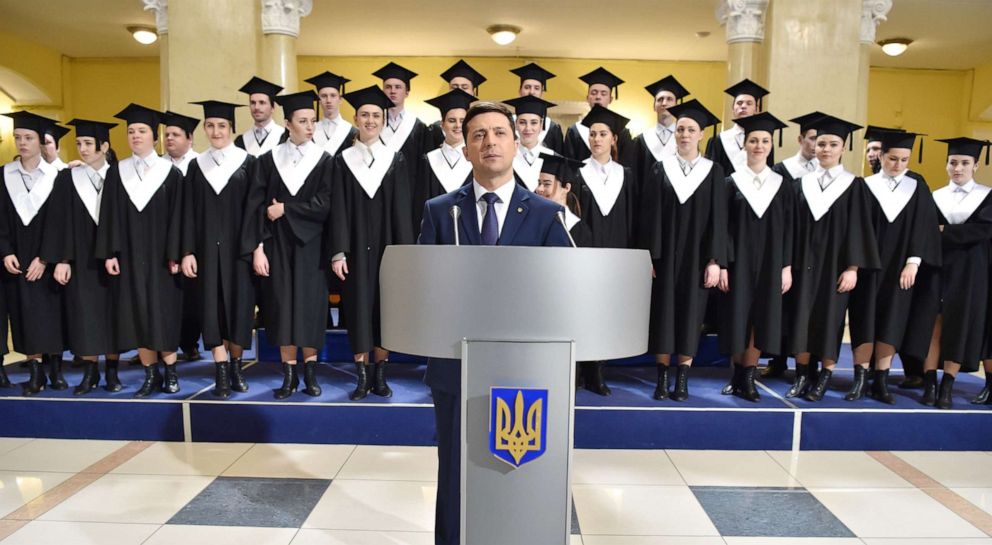
Now, Zelenskiy, who has no previous political experience, is looking to complete the feat in real life. Three final polls ahead of Sunday’s showed him with a strong lead over Ukraine’s unpopular president, Petro Poroshenko.
Separate polls by the pollster Rating Group and the Democratic Initiative Foundation found roughly 27 percent of voters intended to back Zelenskiy against roughly 17 percent for Poroshenko. Yulia Tymoshenko, the former prime minister, was battling for second place with Poroshenko.
The DIF poll and another by the Kiev Institute for International Studies, however, showed her falling behind by roughly 4 points.
Sunday’s vote, the second election since Ukraine’s 2014 revolution, is seen as a key moment for the country. Still battered by a smouldering war to its east with Russian-backed rebels, Ukraine is still struggling to fulfil the expectations of the mass protests five years ago that toppled then-president Viktor Yanukovych.
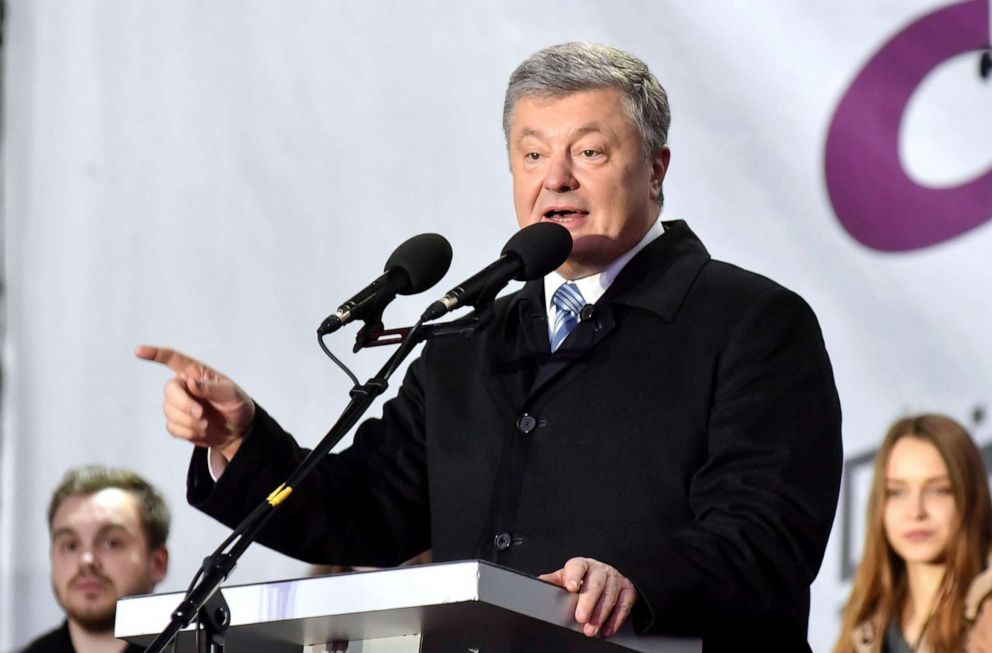
Zelenskiy is breaking through against a backdrop of deep discontent among Ukrainians with establishment politicians and the economy. Many observers see obvious parallels in Zelenskiy’s outsider candidacy with Donald Trump, as well as other populist insurgents, such as Italy’s Five Star Movement, which swept to power headed by Beppe Grillo -- also a comedian.
“The trust in all politicians has fallen so much that people want to elect anybody at all as long as they’re not from the establishment,” said Volodymyr Paniotto, a veteran pollster at the Kiev Institute of International Studies.
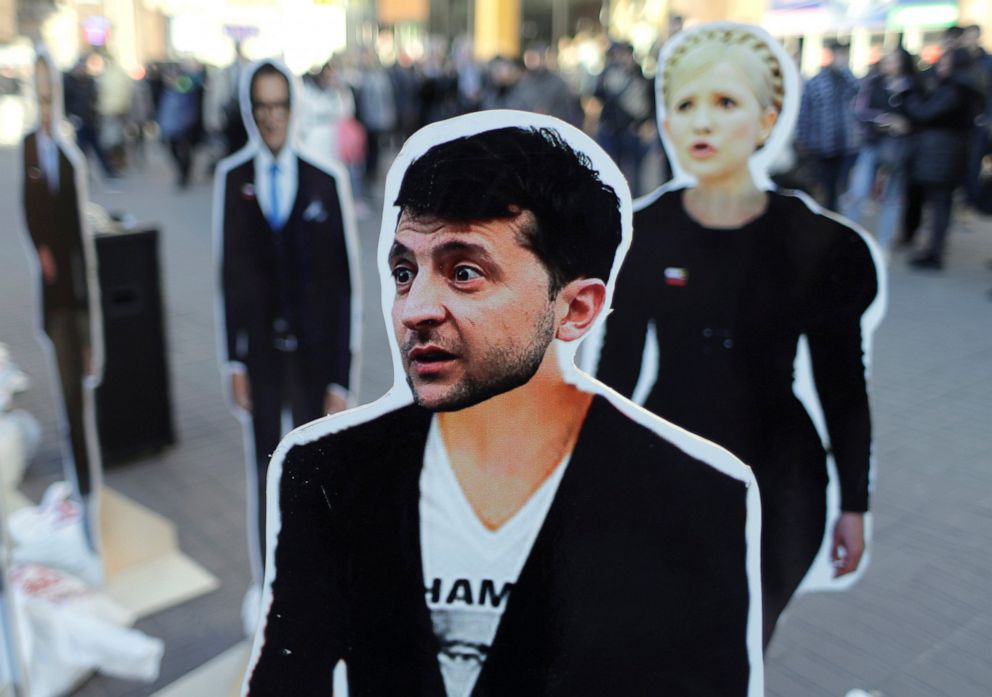
More than any other, Zelenskiy’s campaign is an extraordinary blending of reality and televised fiction.
In his campaign, Zelenskiy has made little distinction between himself and his fictional persona. The campaign has been less a policy platform than a stand-up routine -- instead of rallies, the comedian has held free gigs where he ridicules the other candidates.
His central message is that of his show -- the need for an outsider to shake up Ukraine’s politics and judicial system. Additionally, the campaign promises to fulfil what many Ukrainians saw as a core demand of 2014’s revolution: accountability and prosecution for corrupt officials.
He has pledged to strip lawmakers, judges and the presidency of immunity.
It is a message that Zelenskiy's two opponents are struggling to combat. Poroshenko, a billionaire confectionary magnate nicknamed the “Chocolate King,” was elected on the back of the 2014 protests. He is able to claim substantial achievements: holding back the Russian attack in the east, obtaining a visa-free deal with the European Union, and keeping Ukraine’s international creditors on side.
But he has become deeply unpopular for his perceived failure to tackle corruption, exacerbated by his own unmet promises to divest of his business while president.
One of Zelenskiy’s most quoted one-liners asks: “Why does Poroshenko want a second term? So he doesn’t get a prison term.”
There is a key difference between the real Zelenskiy and his fictional president, however. While in his show, Zelenskiy battles oligarchs, in reality he has close ties to one of the country’s most notorious billionaires.
Ihor Kolomoisky’s owns the television channel 1+1, which broadcasts Zelenskiy’s shows, and the two have been business partners.
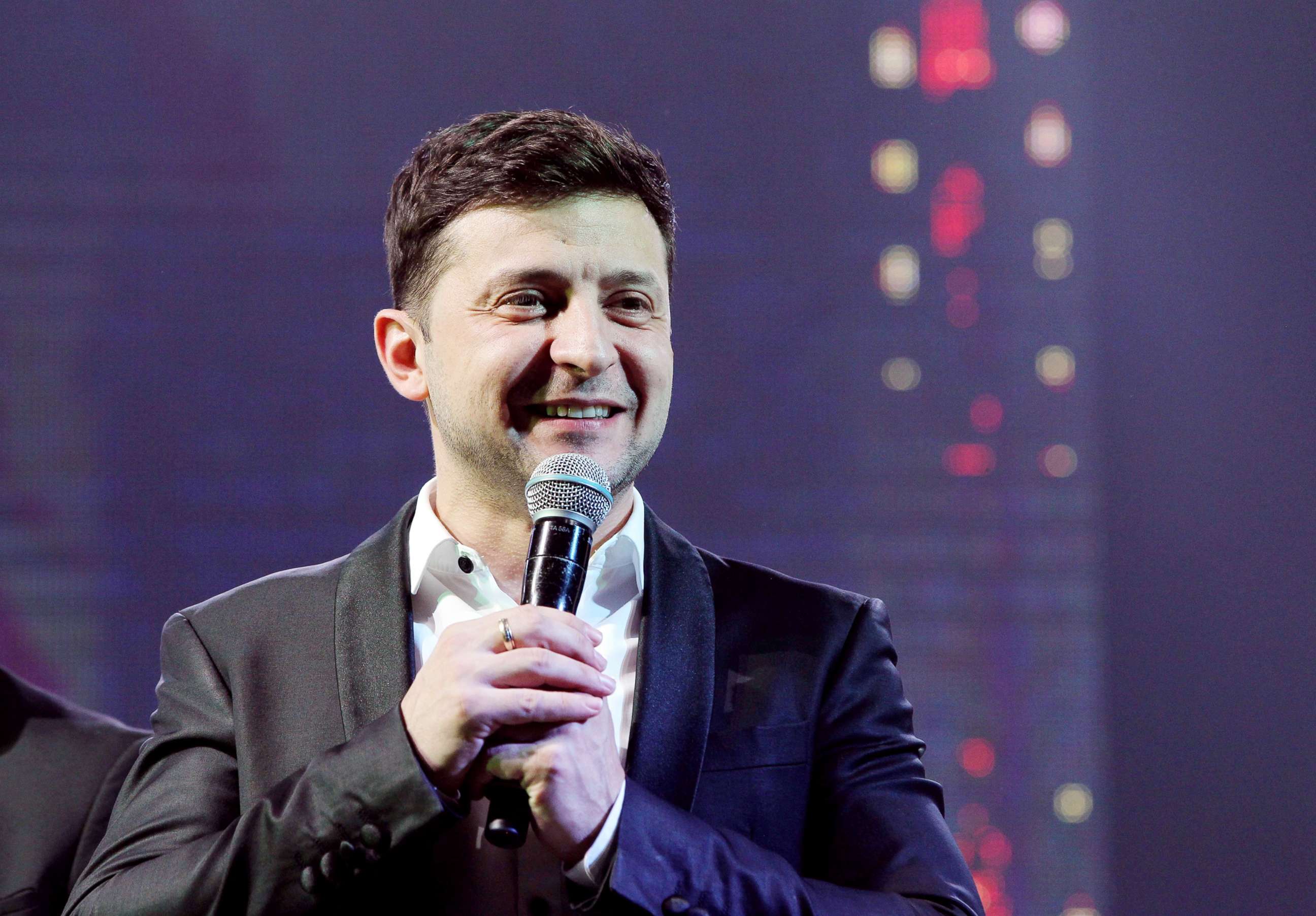
Zelenskiy’s closeness to Kolomoisky and, in particular, his inexperience has alarmed many observers. But he has won over a number of leading pro-Western liberal reformers, who see in him a chance to clean up Ukraine’s bureaucracy and get their program into government.
Aivaras Abromavičius, a former economic minister who resigned from Poroshenko’s government in 2016 in protest at entrenched corruption, says he has been advising Zelenskiy and introducing him to diplomats and business representatives.
“Ukraine needs a leader who is a leader of other leaders,” Abromavičius said in a telephone interview. “We have many superstars in this country that can do reforms. And all you need is a leader that would be a platform for all of those superstars.”
Unlike U.S. President Trump and other populist leaders in Europe, Zelenskiy's positions -- to the extent he has expressed them -- are moderate. Abromavičius said based on his interactions with Zelenskiy he has “no problem with his central values” and is convinced his desire to change Ukraine is sincere, even “sometimes bordering a bit on naïve romanticism.”
Poroshenko’s chances of defeating Zelenskiy are still seen as high. Poroshenko’s campaign has focused heavily on his role in standing up to Russia and bolstering Ukrainian national identity, in particular establishing an independent Orthodox church. He is widely considered the Kremlin’s least favorite candidate -- an important plus for many voters.
Pollsters said high turnout would be a key factor for a Zelenskiy win. Volodymyr Paniotto, a veteran pollster at the Kiev Institute of International Studies, said if Zeleinskiy makes it to the second round, though, his polling shows he would currently win against either Tymoshenko of Poroshenko.
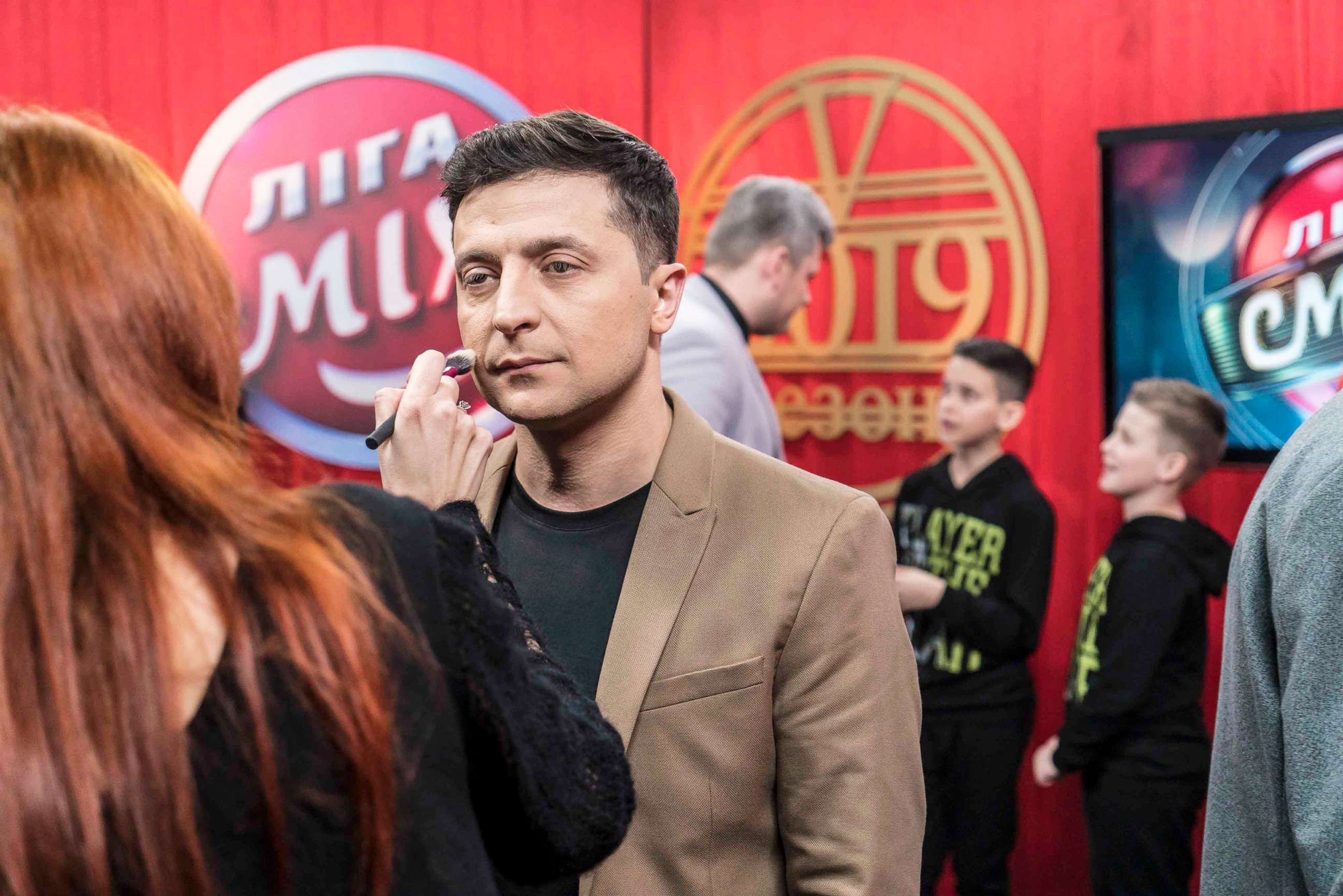
The unpredictable nature of the race is viewed as a healthy sign for Ukraine’s democracy. But the campaign has been far from model, with abundant reports of dirty tricks on virtually all sides. Those range from alleged vote-buying to a bizarre “clone candidate” who shares the same name as Tymoshenko, intended to dupe voters into marking the wrong candidate on their ballot.
The spectre of trouble from far right groups is also haunting the vote. Ultranationalists have repeatedly attacked police at campaign rallies. One group, the National Corps, which espouses neo-Nazi views, is signed up to monitor voting at polling stations, prompting fears of possible intimidation.
Russia also remains a worrisome presence. On Thursday, Ukraine’s foreign intelligence service warned that Russia was plotting cyber attacks against electoral commissions with the aim of casting doubt on the vote.
If, as expected, no candidate wins a simple majority on Sunday, then a run off will be held on April 21.




